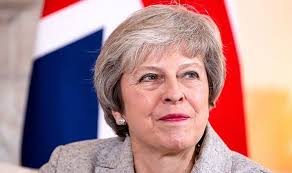British MPs have failed to back any of the eight options aimed at breaking the Brexit deadlock.
The UK parliament held a number of non-binding, indicative votes on suggestions aimed at solving the impasse around the country’s EU departure.
But none of the eight options put forward on Wednesday gained a majority.
A move to hold a public vote on PM Theresa May’s Brexit deal got the most votes with 268 but ultimately fell short.
The same was the case for a plan to establish an EU-UK customs union.
A second stage of debate and voting is scheduled for next Monday, which is expected to see MPs consider a reduced shortlist of options.
The latest moves come after May has twice failed to get MPs to back her EU divorce deal. She offered to resign earlier on Wednesday if members of parliament pass it at a third attempt. However, there are question marks around whether it will ever make it back to the House of Commons: speaker John Bercow has said May cannot bring the deal back unless it is changed.
The prime minister suffered a further blow on Wednesday night when Northern Ireland’s DUP, whose support is seen as crucial, said they would still not back the deal due to the backstop – the mechanism designed to guarantee an open Irish border.
Under the revised Brexit timetable, the EU has given the UK parliament until the end of this week to pass the exit deal and secure a departure date of May 22. Otherwise, the UK is set to leave the EU on April 12 unless it can come up with an acceptable way forward.
The indicative votes were aimed at allowing MPs to express their preference for how they think Brexit should go forward and potentially allowed the government to see which option could command a majority in the House of Commons.











